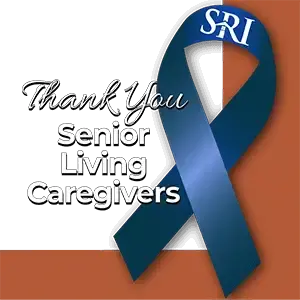Posted in: Senior Living
When caring for an aging parent or relative from afar, it can be hard to know when your help is needed. Sometimes, your parent will ask for help. Or, the sudden start of a severe illness will make it clear that assistance is needed. But, when you away from them, some detective work might be necessary to uncover possible signs that support or help is needed.
A phone call is not always the best way to tell whether or not an older person needs help handling daily activities. The person may not want to worry you or may be embarrassed to admit that he or she cannot handle certain daily activities.
Recognizing Differences in an Aging Parent’s Behavior
It may be difficult to notice differences in behavior when you don’t live close to a family member. A family member may withdraw from activities, forget to take medication, or stop taking care of themselves or their home. These signs may seem small, but they are crucial for an aging parent or relative’s safety and well-being. With the person’s permission, you could contact people who see the person regularly—neighbors, friends, doctors, or local relatives, for example—and ask them to call you with any concerns. You might also ask if you can check in with them periodically. Look for safety issues and at the overall condition of the home, and try to determine the older person’s mood and general health status. Sometimes people confuse depression in older people with normal aging. A depressed older person might brighten up for a phone call or short visit, but it is harder to hide serious mood problems during an extended visit.
What to Do When an Aging Parent Needs Help
When you notice signs that your aging parent or relative needs help, it is important to know what steps to take next. Some signs may require a simple fix, like needing new glasses or a new prescription. But other times, you may need to provide more help. When you visit, look around the home for possible trouble areas. If you can’t fix everything during your visit, see if you can arrange with someone else to help finish.
Having to make important healthcare decisions for an aging parent can be hard on both family members and caregivers. Be sure to voice your concerns with your family member and explain to them why you are feeling this way. Your first consideration should be to try to fulfill the wishes of you parents wherever possible. If not, try to make similar decisions to ones they may have made in the past. This way, you can ensure you are trying to do what is in the best interest for your parent. It is also handy to have a list of local resources in their area to contact if you need to.
In some cases, you may be in the position of having to help your parent make difficult healthcare decisions. If a parent is sick, it is important that they assign a power of attorney for health care to allow someone to act on their behalf in medical situations.
This information has been reposted with permission by the National Institute on Aging.






for
special events
and offers